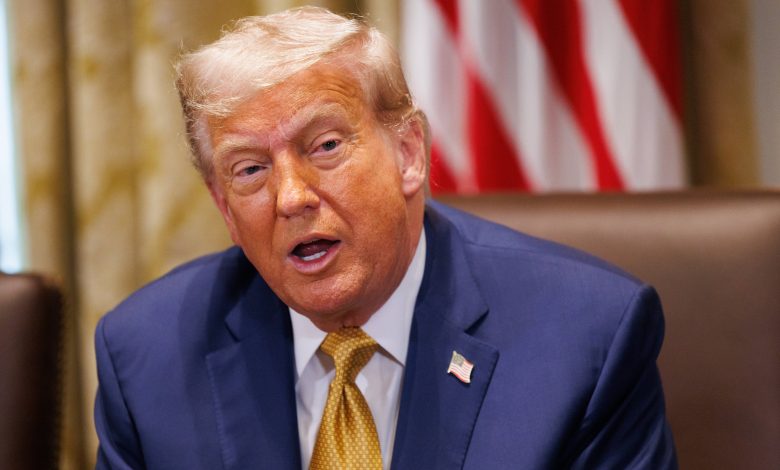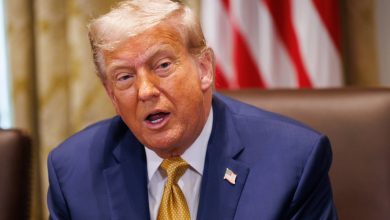Foreign
Trump threatens 200% tariff on pharmaceutical imports

U.S. President Donald Trump has threatened to impose tariffs of up to 200 per cent on imported pharmaceuticals, giving manufacturers roughly 12 to 18 months to shift production to the U.S. or face massive tariffs.
The move aimed to boost domestic manufacturing and could significantly impact the global pharmaceutical industry.
Industry experts consider the one-year deadline to relocate production unrealistic, as building new factories and adjusting supply chains takes years.
For Adrien Chantraine, a pharmaceutical expert with Circle Strategy, Trump’s announcement remains, “At this stage, a political stance, clearly part of a larger trade showdown with the European Union.”
“Yet, were it to materialise, its dual effect (of tariffs and price reduction) would shake the sector’s economic engine.”
Chantraine warns that, today, nearly three quarters of global pharmaceutical profits accrue in the United States “and serve to fund global R&D.”
The industry considers the one-year deadline to relocate pharmaceutical production “unrealistic.”
“The investments recently announced by laboratories are actually part of industrial cycles lasting five years and more,” Chantraine points out.
“Moving production does not happen overnight building a new factory alone takes years,” added the head of German company Merck KGaA, Belen Garijo, in an article in the Welt am Sonntag newspaper.
Schneider voices similar concerns.“Moving production takes in many cases more than the 1-1.5 years thus giving such a short period does not make much sense.
”For those companies that have extra capacity in the US can move production faster but the FDA still needs to give a nod,” said Vontobel’s Schneider, referring to the US authority responsible for drug regulation.
”As for the proposed tariff rate, 200 percent, “Americans would need to pay significantly higher drug prices – or simply not take these drugs,” he warned.
The also said that a 200 per cent increase in tarrif could lead to significantly higher drug prices in the U.S., potentially making medications unaffordable for many patients.
They said that the tariffs could disrupt the global pharmaceutical supply chain, affecting countries like Ireland and Switzerland that heavily rely on exports to the U.S.
“The pharmaceutical industry takes this double threat seriously,” said Alexandre Regniault, a specialist in health law at Simmons & Simmons, in an interview with AFP, while adding that he regarded those pressures as a “negotiating tool.”
The Pharmaceutical Research and Manufacturers of America (PhRMA) has warned that tariffs would divert funds from domestic manufacturing and research, potentially harming the development of new treatments.
While some European pharmaceutical companies like Roche, Novartis, and Sanofi have announced investments in the U.S., the industry remained cautious due to the uncertainty surrounding the tariff.
Other countries may retaliate with their own tariffs, potentially sparking a global trade war.
The tariffs could lead to shortages of critical medications, particularly generics that rely on overseas production.
AFP


